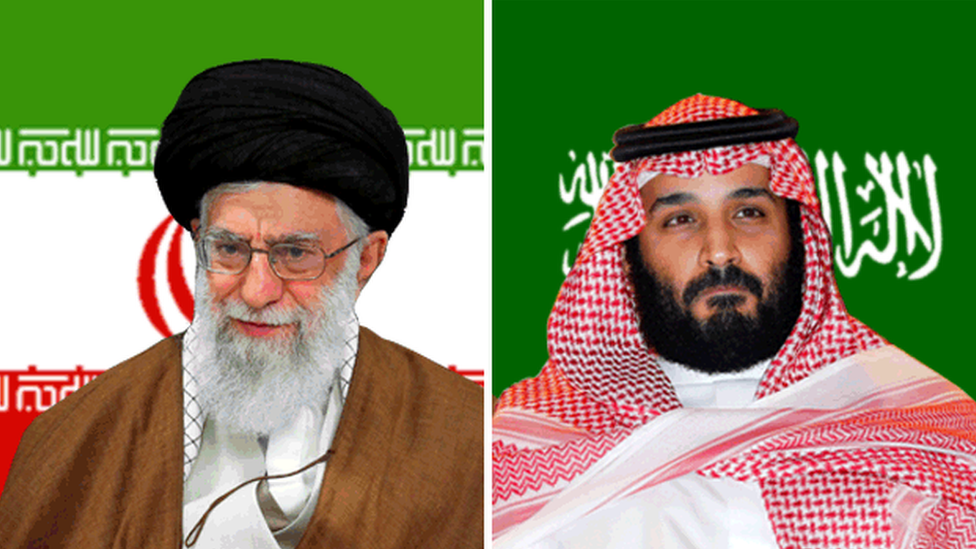Turkey Syria offensive: What did the Kurds ever do for the US?
- Published
Trump: Kurds "didn't help us in Second World War"
Even by President Trump's own remarkable standards, his off-the-cuff remark that the US alliance with the Kurds is of little importance because they were not at Normandy - they did not fight with the US and its allies in World War Two - is extraordinary.
It is much more recent history that matters in Syria and there, the Kurds have proved Washington's closest and most effective partner.
The US approached the Syrian civil war with caution. Though opposed to the regime of President Bashar al-Assad, its chief concern was that the chaos there provided ungoverned space for the expansion of the so-called caliphate of Islamic State (IS).
All sorts of players including the Turks, the Gulf Arab States and so on pitched in with assistance to various rebel groupings in the hope of removing the Assad regime.
But with its own focus firmly on counter-terrorism rather than re-making Syria, the US sought to find elements on the ground who could mount a serious challenge to the fighters of IS. Various abortive attempts at arming and training local militias failed - in some cases US weapons were simply handed over to IS.
Finally Washington turned to the Kurds. This was always going to present diplomatic problems. There are significant Kurdish populations in several Middle Eastern countries, including Turkey, Syria and Iraq. Many aspire to Kurdish nationhood.
Indeed in Turkey, a separatist Kurdish movement known as the Kurdistan Workers Party or the PKK waged a long-running campaign against the Turkish state. Both the US and the Turkish authorities regard the PKK as simply terrorists.
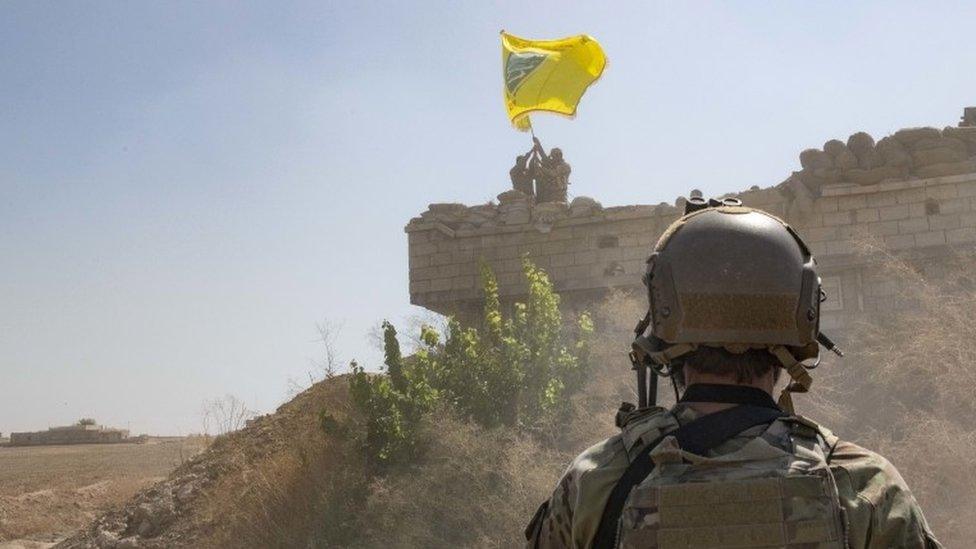
In September the SDF dismantled YPG military positions under a US-Turkish agreement - here a US soldier is seen looking on
Across the border in Syria another Kurdish group known as the YPG had some links with the PKK in Turkey. And it was this group that formed the core element of the mixed Kurdish and Arab militia that Washington decided to throw its weight behind.
Kurdish internal politics are undoubtedly complex. And it is interesting that President Trump himself mixed up these two Kurdish groups - the PKK and the YPG.
But in Turkish minds there is little difference. For Ankara these Kurdish groups are terrorists and thus Washington was effectively siding with enemies of the Turkish state.
Washington's decision to support the Kurds with training and equipment reaped dividends. They proved both reliable and capable and the dismantling of the IS caliphate in Syria owes much to their efforts.
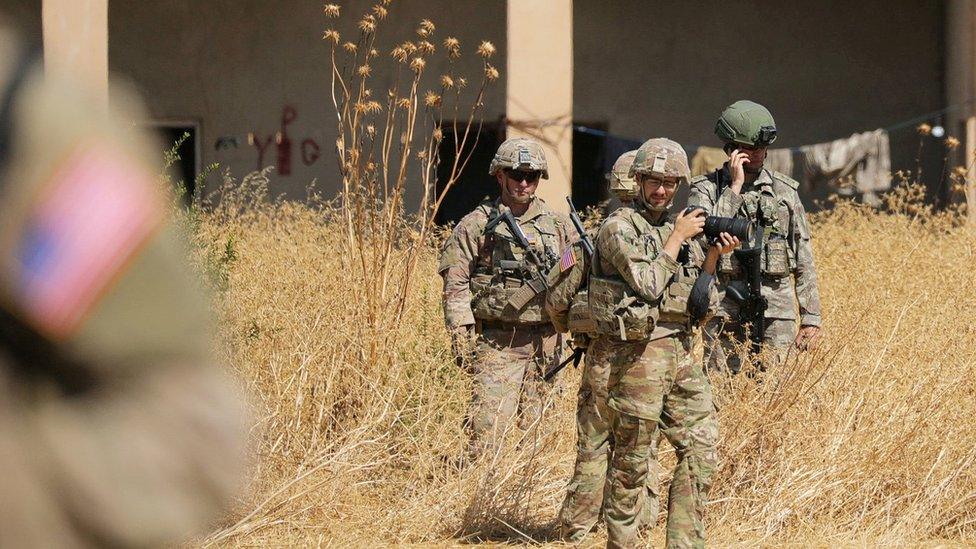
Joint US and Turkish patrols had been taking place near the Turkish border
Simultaneously the US has sought to bend over backwards to calm Turkish fears, most recently developing a pattern of joint patrols between US and Turkish troops as a confidence-building measure in the border area. It is these US forces that were withdrawn ahead of the Turkish operation.
President Trump appears to have decided that now the Kurds do not count for much and, despite his denials, he seems effectively to have given the Turks a green light to mount this operation by failing to make it clear to Ankara that this partnership really mattered to Washington.
This of course is not the first time that the Kurds see themselves as having been failed by Washington. At least twice before when Iraqi Kurds were encouraged to rise up against the authorities in Baghdad by the Americans they were let down.
In 1972, partly armed by Washington and urged on by the then Shah of Iran, Iraqi Kurds defied the government in Baghdad. But the Shah subsequently did his own deal with Iraq and the Kurds were brutally suppressed.
Much the same happened in the wake of the US eviction of Iraqi troops from Kuwait in 1991. The then US President George HW Bush called on the Kurds in Iraq to rise up against Saddam Hussein's regime in Iraq. Little practical support was offered and the Kurdish revolt was again brutally put down.
Some residents began to flee as smoke rose over the border town of Ras al-Ain
If Mr Trump is to be taken at his word, alliances - whether it be with the Kurds or even within Nato - are for him simply transactional business arrangements to be judged according to a short-term cost-benefit analysis: what is the US giving and what is it getting in return?
In seemingly writing off the Kurds he suggests that the US can easily find other allies in the region. Really? The US tried pretty well every other option before backing the Kurds. If there is a resurgence of IS then who is Washington going to turn to?
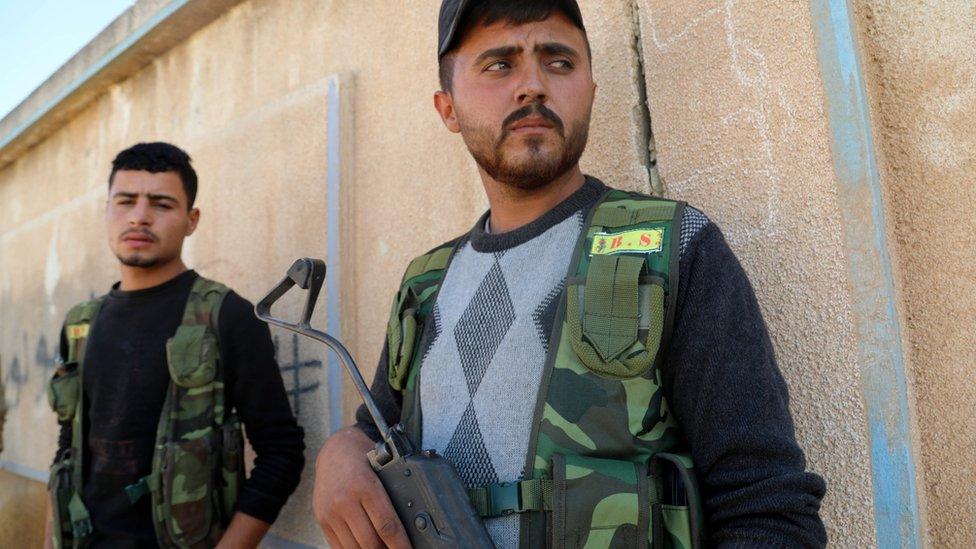
SDF forces are now attempting to resist the Turkish incursion
Of course this whole episode also raises questions about the relationship between the US and another important ally - Turkey, which incidentally was also not at Normandy in WWII. Turkey's offensive into Syria risks becoming a major test of Turkey's whole relationship with the West.
This is after all the same Turkey that recently purchased advanced Russian air defence missiles and was thus ejected from the US F-35 fighter programme.
Threats are being made from all sides. Mr Trump has warned Turkey that if it goes too far he will do terrible damage to the Turkish economy. Turkish President Recep Tayyip Erdogan is telling the Europeans that, if they condemn Turkey's actions, he will allow huge numbers of refugees to head for the EU's borders.
And to think that all these countries are Nato allies!
- Published17 September 2019
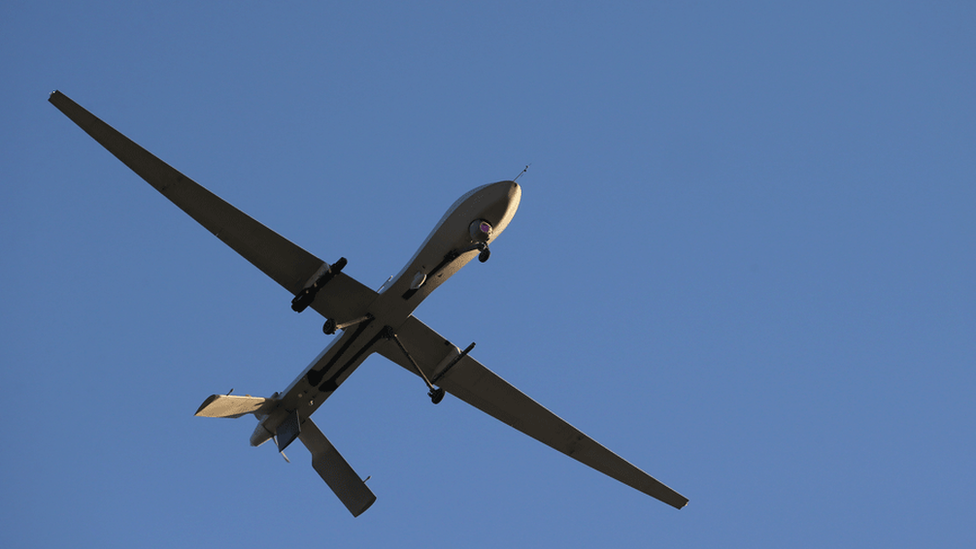
- Published16 September 2019
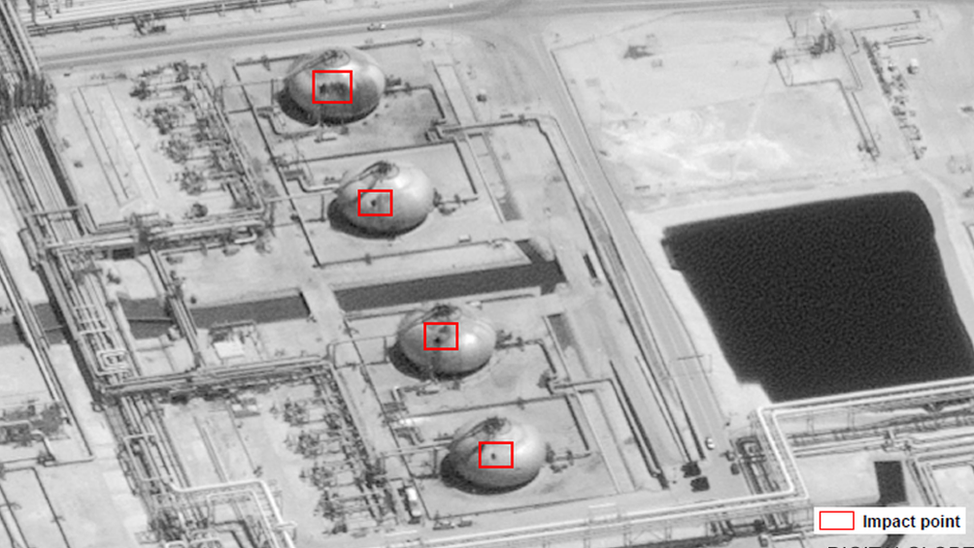
- Published16 September 2019
